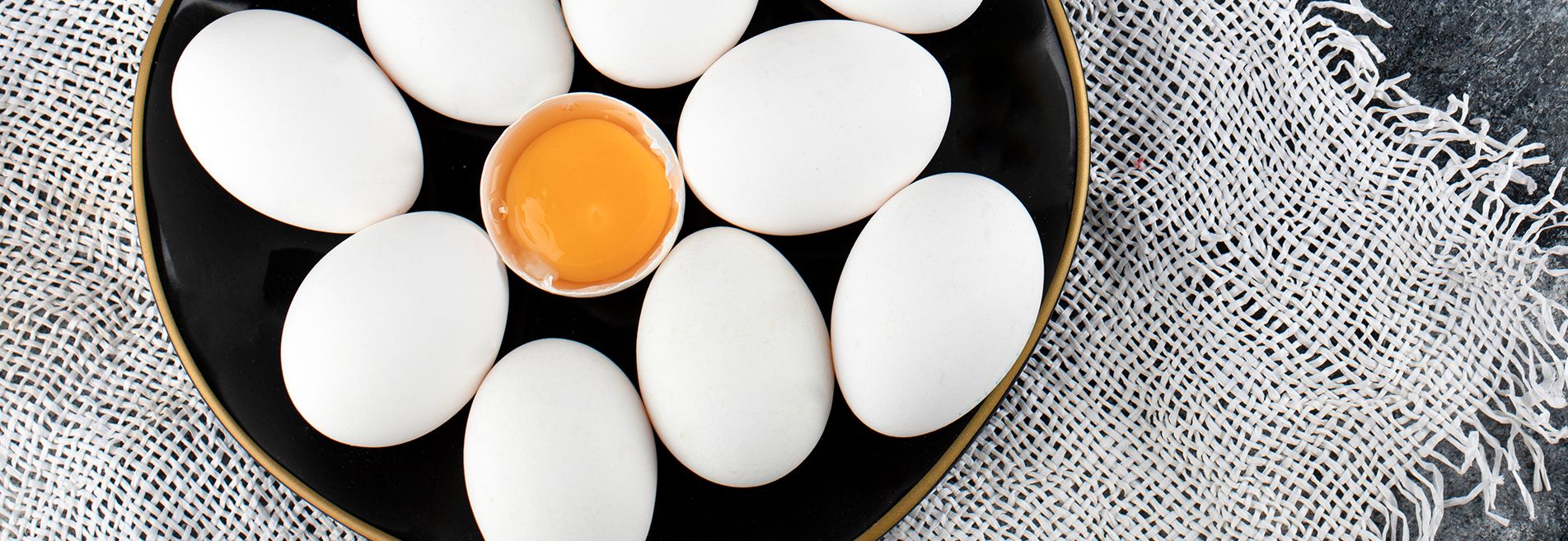

The egg is definitely one of the most important symbols of Easter and cannot be missing from the festive table. It will probably appear on the plate in many forms - in appetisers, main courses, as an ingredient in cakes and also solo. Ideas for preparing dishes with eggs are plentiful, but do you know how to store this precious product before you start preparing your meal? Here are some tips on what to look out for!

1. Keep eggs cool
In order to keep all the nutritional and taste qualities of eggs for as long as possible, they should be kept cool - preferably in a cold store or refrigerator. It's worth to know that the temperature as low as 18 degrees Celsius adversely affects their shelf life. For this reason, it is best to take them out of the refrigerator just before use. If they happen to be warmed to room temperature, they should not be put back into the fridge, as temperature fluctuations disrupt the egg's internal natural protection..
2. Keep an eye on storage times
The way eggs are stored has a significant impact on their shelf life. They can be kept in the fridge for up to 4-5 weeks, although it is important to remember that they should not be stored in containers on the fridge door, as this is the place most exposed to temperature variation. Eggs can also be stored outside the refrigeration device, as long as it is a dry and dark place where the temperature does not exceed 12 degrees Celsius, but under these conditions their shelf life is reduced to about 14 days.

3. Pay attention to the surroundings
Eggs easily soak up the intense aromas of other foods, such as onions, garlic or cheeses, so they should be kept away from strong-smelling items, preferably in a sealed container. Ideally on the middle shelf of the fridge, in the back. It is also important to remember not to place them near products intended for direct consumption, such as salads, as salmonella bacilli can be found on egg shells.
4. Laying makes a difference
The way the eggs are laid in the pack also affects their shelf life - to prolong their durability, keep the eggs in the pack with the pointed end facing down. There is an air chamber in the rounded part of the egg - the larger it is, the less fresh the egg is. Positioning the egg with the chamber on top can slow down the process of its enlargement and thus the ageing of the egg.

5. Wash straight before use
Eggs intended for food preparation should be washed, but only before use. Their shell is covered with a thin protective layer called cuticle, which prevents harmful microorganisms from entering the interior and losing moisture. Removing this layer significantly speeds up the ageing process of eggs.
6. Freeze larger quantities
Stripped of their shells, fresh eggs can easily be frozen - either whole or separately the whites and yolks. In the former case, the eggs need to be mixed before freezing so that the white and yolk combine. It is important to place them in tightly sealed containers and label them carefully. In this form, they can be stored for up to a year.

7. Cooked eggs eat quickly
The shelf life of heat-treated eggs decreases rapidly. Hard boiled and kept in the shell in the fridge can be consumed for up to 7 days. Boiled, peeled - up to a maximum of 3 days, as can a shell-free raw egg. If you have doubts about the freshness of your eggs, it is better to refrain from eating them. An egg that is not fresh can result in food poisoning!

8. Eat for health
Hen eggs provide our body with many valuable nutritional values, so it is worth including them in your menu. Among other things, they contain a large set of essential amino acids, composed in good proportions for humans. They also contain an impressive set of fat-soluble vitamins: A, D and E and B vitamins, as well as minerals such as zinc, phosphorus, potassium, sodium, calcium, iron, magnesium and selenium. One egg covers approximately 15% of an adult's daily protein requirements. The egg yolk contains beta-carotene and lutein, which protect against harmful UVA and UVB radiation. Soft-boiled eggs are the healthiest and most easily digestible, but in any form they will benefit our health as long as we do not overdo them 😉

Tasty egg!
